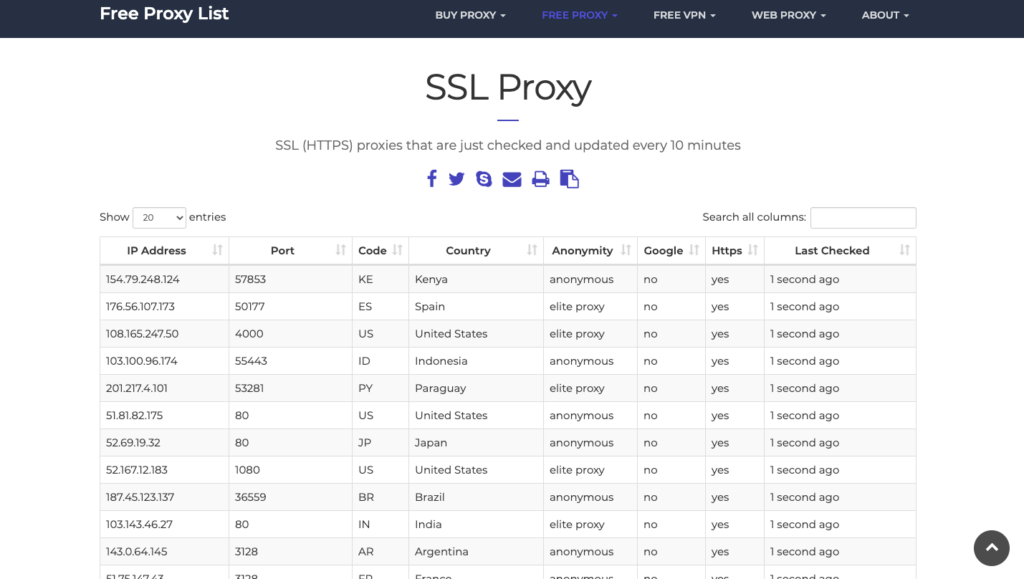In today's digital landscape, web scraping has turned into an essential tool for companies and individuals looking to collect data from the huge reach of the internet. However, as web scraping evolves, so do the challenges associated with it, especially concerning the risk for IP bans and data restrictions. One efficient way to overcome these challenges is through the use of proxy servers. These facilitators not only allow users to obtain data more efficiently but also play a crucial role in preserving anonymity and enhancing online security.

Understanding how proxy servers work and the various types out there can significantly affect your web scraping success. From protecting your identity online to boosting the overall efficiency of data collection, proxies offer several benefits that address different needs. In this article, we will explore the best practices for using proxy servers in web scraping, covering all aspects from their benefits and types to tips on avoiding complications such as IP bans. Whether a seasoned data scraper or just beginning, perfecting the use of proxy servers can elevate your scraping operations to a new level.
Comprehending Proxy Solutions
A proxy acts as an intermediary between a individual's device and the internet. When a individual requests a web page, the demand is sent to the proxy server first, which then passes it to the destination website. This service receives the feedback from the website and sends it back to the user. By doing this, proxy services can mask the user's IP address, provide secrecy, and enable secure browsing.
There are numerous types of proxy services available, each serving specific roles. HTTP proxies are designed for online traffic, while SOCKS proxies can handle any type of request. Transparent solutions do not alter demands or responses, making them suitable for storage and internet filtering. Grasping these types is crucial for choosing the right solution for specific tasks, such as content extraction or accessing region-locked content.
Using proxy servers comes with a wealth of gains, particularly regarding internet privacy and protection. They can hide a individual's identity, protect personal information, and prevent cybercriminals from tracking online activities. Additionally, businesses rely on proxies to enhance protection measures and ensure protected data transmission. This mix of features makes proxy servers a crucial tool for anyone looking to enhance their internet experience.
Advantages and Risks of Utilizing Proxy Servers
Utilizing proxy servers offers several advantages, particularly in improving online privacy and safety. Proxies function as middlemen between individuals and the internet, hiding the user's IP address and allowing for anonymous browsing. Click for source safeguard personal data from being monitored by sites and external entities. Additionally, proxies can allow users to view geo-restricted content, simplifying the process to browse a wider array of online resources without encountering location barriers.
Nevertheless, there are risks linked to utilizing proxy servers, especially free ones. Free proxies frequently compromise safety and confidentiality, as they may record user data or even inject malicious ads into web traffic. Users may also face unreliable connections and decreased speeds due to shared bandwidth. Furthermore, some proxies can lead to access bans from certain websites that detect proxy usage, causing annoyance for users attempting to extract data or obtain specific services.
To enhance the advantages while minimizing risks, users should choose trustworthy proxy services, preferably those that offer robust encryption and a strict no data retention policy. It's vital to understand the type of proxy being utilized—whether HTTP, SOCKS, or home-based—as each has various use cases and implications for security. By being aware and vigilant, users can fully leverage the benefits of proxies while protecting their online operations.
Best Practices for Web Data Extraction with Proxy Servers
When performing web scraping with proxies, it is essential to select the suitable type of proxy based on your particular needs. Residential IPs are often preferred for large-scale scraping tasks, as they provide IP addresses linked to real residential devices, thereby making them less prone to be banned by target websites. On the flip side, datacenter IPs can be used for high-speed scraping when anonymity is not a top priority, but be mindful that they are easier identifiable as non-residential and may face more frequent bans.
Another important practice is to switch your proxy IPs regularly to avoid IP bans and CAPTCHAs. Many proxy providers offer rotating proxy services, which systematically change your IP address at predetermined intervals or request limits. This strategy helps ensure that your scraping activities remain under the radar by replicating the behavior of a typical user, thus reducing the risk of detection and blocking. Additionally, incorporating delay mechanisms between requests can further minimize the risk of being flagged as a bot.
Finally, always remember to adhere to the legal and moral guidelines of web scraping. Review the terms of service for the websites you wish to scrape and follow their rules regarding automated data collection. Applying responsible scraping practices will not only protect your proxy accounts but also help maintain the integrity of the internet ecosystem. By integrating the right type of proxies with rotation strategies and ethical considerations, you can carry out effective and ethical web scraping.
